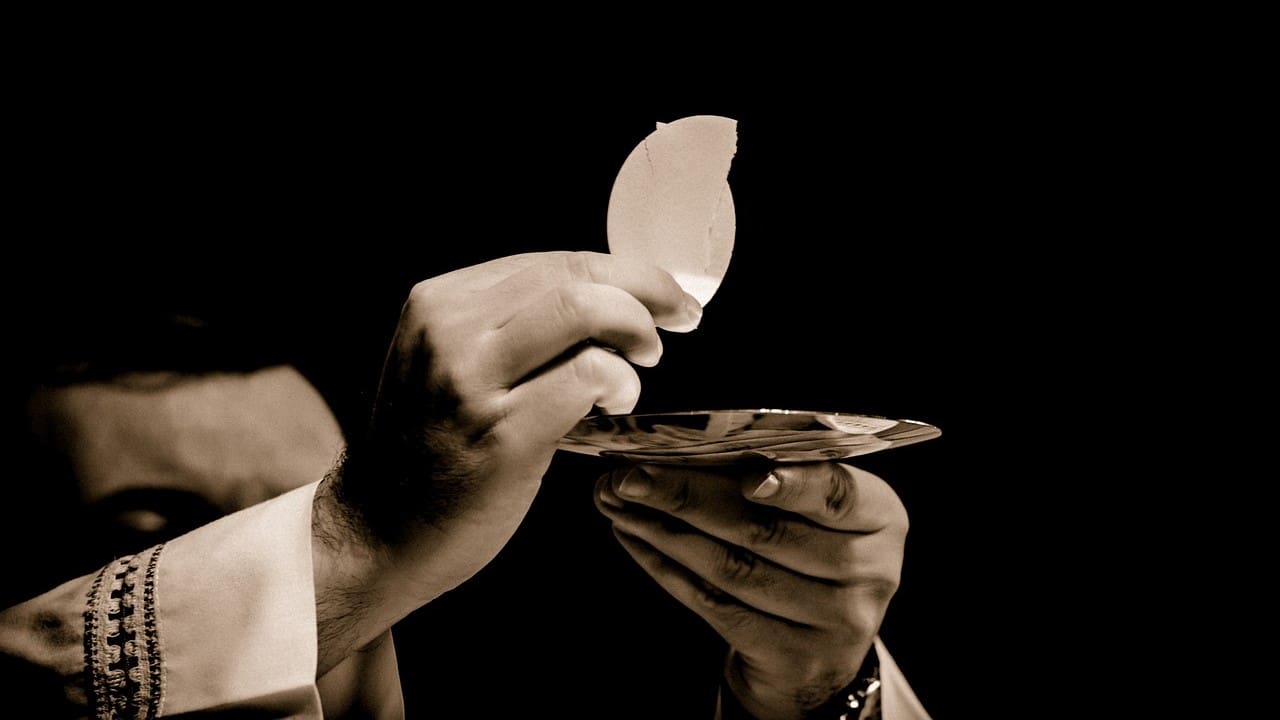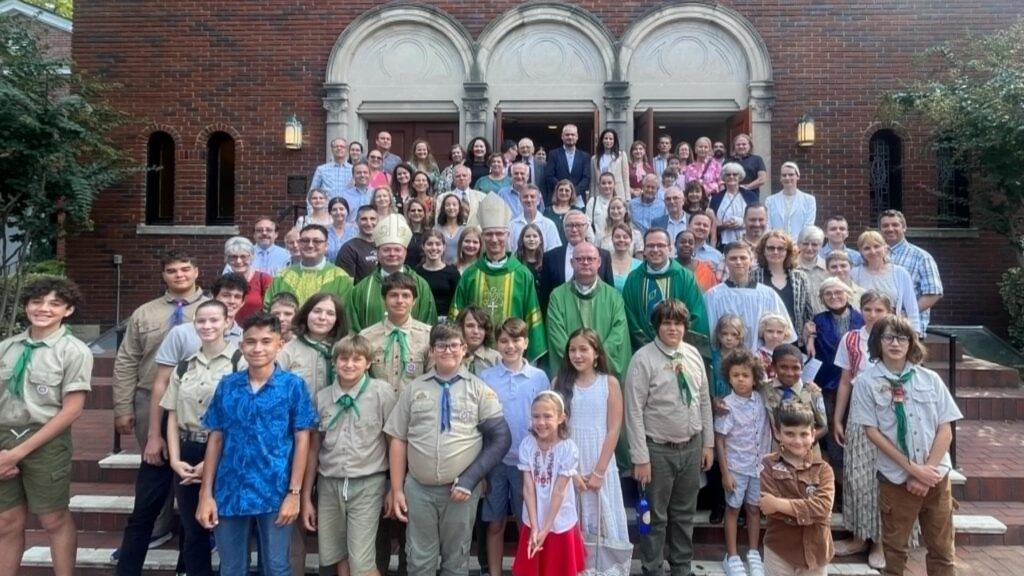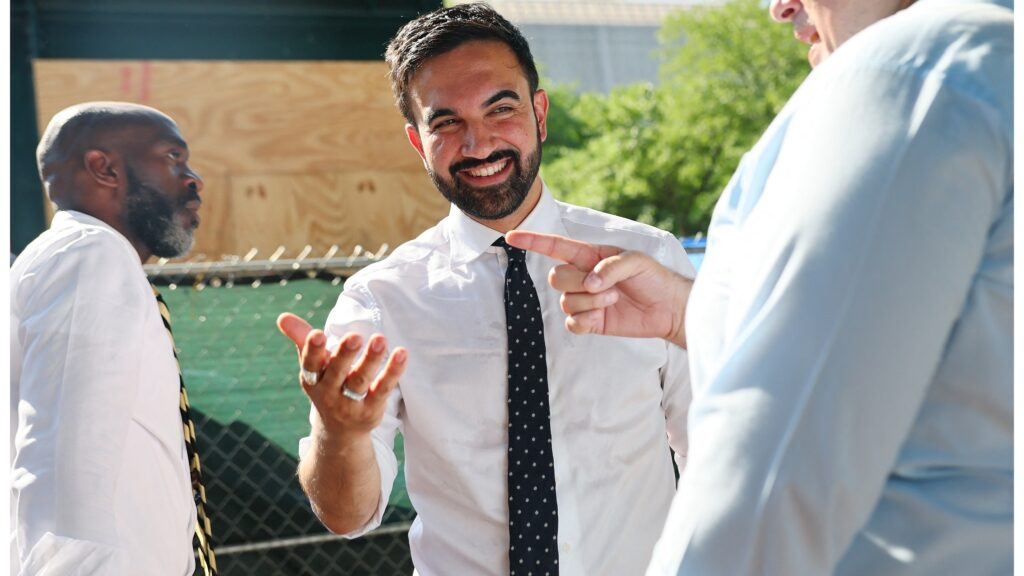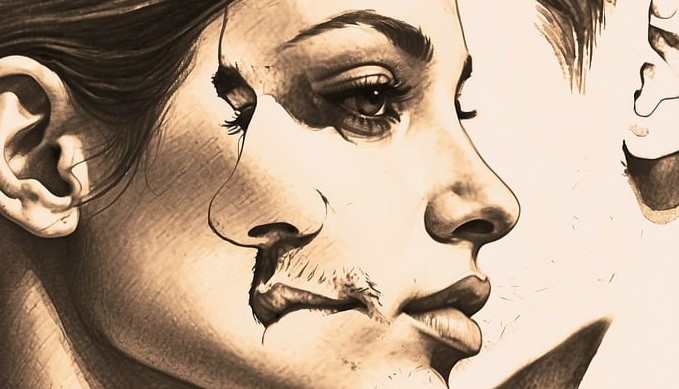In his epic A Tale of Two Cities (1859), Charles Dickens portrays the social disparities and political unrest of the late eighteenth century, that of civil injustices and inequalities of two contrasting worlds of London and Paris before and during the French Revolution. Dickens, in his iconic opening line: ‘It was the best of times, it was the worst of times’, presents a complex narrative involving characters like Charles Darnay, Sydney Carton, and Lucie Manette, each grappling with love, sacrifice, and the profound societal transformations brought about by historical upheaval. While political events drive the story, Dickens takes a clear anti-political tone, denouncing both aristocratic tyranny and revolutionary excess.
Had Dickens only witnessed the chaotic and divisive situation of the Catholic Church today he probably would have perhaps written A Tale of Two Churches, pointing out the turmoil caused by the
politically correct LGTBQ+ lobbyists at the behest of those who seek to uphold and live by the teachings of Christ.
Last week at St. Patrick’s Cathedral in New York, there was a funeral mass for the atheist LGBTQ+ activist ‘Cecilia Gentili,’ a biological man who, as a transgender, had identified as a woman. What made this event even more blasphemous, if that can even be imagined, was the parallel made by a eulogizer of Gentile to the martyr St Cecilia—a virgin who was killed for refusing to renounce the Catholic faith—as ‘this whore…this great whore. St Cecilia, Mother of all Whores’!
The celebrant, Fr Edward Dougherty referred to Gentili as ‘our sister Cecilia’ during the service. During his opening remarks, he said: ‘Except on Easter Sunday, we don’t really have a crowd that is this well turned out,’ to which the transgender activist in the crowd responded with loud cheers and claps. At certain points during the service, Dougherty could be heard laughing at the pranks of the audience. Incidentally, this nonchalant, if not irreverent behaviour tends to be par for the course. I constantly see, for example, priests clowning around before they celebrate mass, instead of properly preparing to celebrate the sacred mysteries. While concelebrating, they joke with other concelebrants in the sanctuary, even writing messages on their phones as mass is being celebrated—I guess the local pub or caffè is not good enough for them. The paradox is that they tend to gripe about the faithful not behaving.
What is ultimately discouraging about the sacrilegious mass at St. Patrick’s is that, despite thousands of individuals who immediately complained to the Cardinal Archbishop of New York, Timothy Dolan, it took days for the Archdiocese of New York to publicly condemn the sacrilege that took place in his cathedral. In addition, both Fr Dougherty and Fr Andrew King, the other assisting priest, did not even offer any rebuke of the blasphemous vocabulary during the mass. As Sheryl Collmer stated in her article titled ‘Letter to the American Church’, whenever the Church hierarchy is expected to speak up in defence of the faith, or for that matter, to encourage the faithful before an ominous society, their tacit silence is deafening.
‘When Roe v. Wade was finally overturned,’ Collmer says, ‘one of the greatest events of this century so far, there was silence from the clergy. There was an equally blank reaction to the experimental, gene-altering brew that was subtly force-injected into two-thirds of the American population. Inexplicable, complicit silence.’
By all means, there are numerous churchmen who gripe and complain about the state of affairs in the Church, but for the most part it does not go beyond that.
I recall when in 2008, if memory serves, the American Consulate in Florence got in touch with me to say that Nancy Pelosi was planning on attending the English Saturday vigil Mass at our Cathedral of Santa Maria del Fiore— at that time I was the chaplain for the English-speaking community in our Archdiocese. I responded:
‘We are more than honoured to have the Speaker of the House at our mass. However, being that I know that she will be at mass, please tell Miss Pelosi not to get in line for Holy Communion, for I shall not give her the Scared Host.’
I explained to the consulate official that anyone who supports abortion, especially in a public manner as Pelosi, cannot approach the altar and receive the Body of Christ. To my understanding, she went to mass the following day to a different church in the city.
In Deny Holy Communion? by Cardinal Raymond Leo Burke, he says:
‘The Church cannot remain silent and indifferent to a public offense against the Body and Blood of Christ.’
This is because we are not free to pick and choose on Church teaching, such as those who promote same-sex unions or abortion.
Cardinal Burke sated in an earlier piece that was published in the Periodica de Re Canonica Roma in 2007:
‘No matter how often a Bishop or priest repeats the teaching of the Church regarding procured abortion, if he stands by and does nothing to discipline a Catholic who publicly supports legislation permitting the gravest of injustices and, at the same time, presents himself to receive Holy Communion, then his teaching rings hollow,’ the cardinal wrote.
‘To remain silent is to permit serious confusion regarding a fundamental truth of the moral law.’
Under the National Socialists in Germany, there was, for all practical purposes, just one salient voice opposing their terror, Clemens August von Galen, the Bishop of Münster Germany—he was raised to the Sacred College of Cardinals in 1946 and beatified by Pope Benedict XVI in 2005.
Van Galen was one who refused to be silent before the enemies of the human race. In November 1936, for example, the Nazis removed all crucifixes from the schools in the city of Oldenburg. Galen’s protest sparked such a public demonstration that the order was cancelled. In 1939 he publicly criticized the T4 Programme instituted by Adolf Hitler—a programme involving the systematic murder of more than 70,000 sick, elderly, mentally retarded, physically infirm, emotionally distraught, and disabled Germans, who were deemed an embarrassment to the so-called Aryan supremacy, and two years later he preached against the general lawlessness of the Gestapo, the confiscation of religious property, and of course, the imprisonment and death of Jews and others Hitler deemed unfit to live. Perhaps it would have been a different Germany had other prominent Catholic prelates voiced their opposition to the National Socialists, instead of silently capitulating to them, or worse, publicly supporting them.
One would think, with the woke culture and the pro-abortion and the LGTBQ+ antagonists, that the shepherds of the Church would take a stance against these movements. By contrast, their response, as we have come to see, has been unbecoming, to say the least.
There are bishops, including cardinals, who are disappointedly fighting to have the moral teachings of the Church changed, such as Cardinal Jean Claude Hollerich, Archbishop of Luxembourg. Not too long ago he voiced his belief that the Church’s position viewing homosexual relationships is wrong. On 1 October 2021, the German Catholic bishops and lay leaders, in a 168 to 28 vote—with five abstentions—openly defied the directives of Rome as they called for the Church to bless same-sex relationships, which, ironically, the Roman authorities had stated was impossible since God ‘cannot bless sin.’ Indeed, now with the Vatican document Fiducia supplicans , which calls for the blessing of homosexual couples—keeping in mind that nowhere in this document does it call for conversion—the door has been opened to LGTBQ+ protagonists to promote their agenda.
This has divided the Church into two Churches, as many, such as the Hungarian and African bishops have rejected the directives of Fiducia Supplicans,
while others have upheld it. It is as if such men are trying to create a parallel church when there is only one Church!
As written in a previous article ‘Church Teaching Is Not Up For Vote’, while bishops may possess executive, legislative, and judicial powers within their own respective dioceses, it is not up to them to decipher what Church laws are to be or not to be observed. Nor for that matter can a pope, despite possessing ‘full and supreme power in the Church’ (canon 332 §1 of the Code of Canon Law), validly legislate a norm that would obligate the faithful to act against faith and morals.
These abuses, however, should not discourage us, for not even death on the Cross could keep the Lord Jesus Christ from fulfilling His mission, as He manifested with His Resurrection. And it shall be the same for us, so long as we do not give into dismay as Judas Iscariot. While seized with remorse for betraying Christ for a mere thirty pieces of silver, instead of asking for forgiveness, he took his own life. Victory shall be ours, for Christ has already won for us with His death and Resurrection from the dead!








